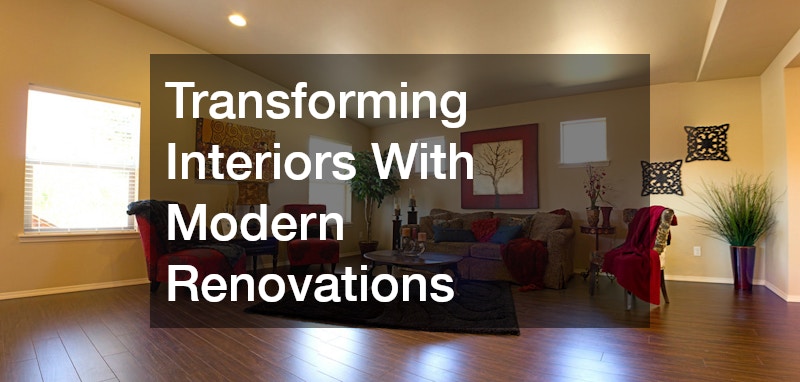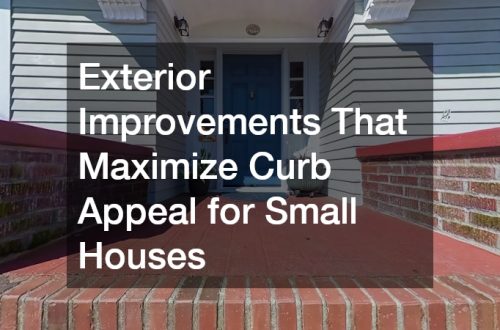Building a dream home is one of the most significant milestones in life. It blends excitement with careful planning and dedicated work. From designing the layout to choosing finishes, every decision shapes not only the look of the home but also how comfortable and functional it will be for years to come. A well-thought-out approach helps homeowners balance beauty, practicality, and long-term value, ensuring the home is tailored to their lifestyle and aspirations. The journey requires both vision and patience, but the end result is a space that embodies personal expression and comfort.
The process can feel overwhelming, but breaking it down into manageable steps makes it more approachable. By focusing on specific areas—such as climate control, exterior finishes, and interior flow—homeowners can make decisions with confidence. Each choice builds upon the last, weaving together the larger picture of what the finished property will become. With expert guidance and thoughtful preparation, the path to creating a space that feels truly personal becomes clearer, paving the way for a place that offers both comfort and pride.
Planning Your Home’s Climate Control System

One of the most important aspects of building a dream home is ensuring it has an efficient and reliable climate control system. Comfort within the home depends on how well the system regulates temperature, humidity, and airflow, making it a key factor in daily life. Proper planning in this area means more than just comfort—it can also impact long-term energy savings, environmental sustainability, and even property value. A well-designed system makes it possible to maintain consistent temperatures across different parts of the house, preventing hot or cold spots and ensuring an inviting environment year-round.
When considering specific options, advanced technologies such as VRF systems can offer greater control and efficiency than traditional methods. These systems allow homeowners to customize the temperature of individual rooms, reducing energy waste and improving overall comfort. Unlike one-size-fits-all systems, they adapt to the unique layout and usage of the home, which makes them especially suitable for personalized builds. For those who want a modern and adaptable solution, investing in this type of system during construction can save money in the long run while supporting a healthier and more sustainable home environment.
Choosing the Right Exterior Materials
The exterior of a dream house is the first impression it makes, combining aesthetics with durability. Choosing the right materials ensures the house not only looks beautiful but also withstands the elements for decades. Factors such as climate, architectural style, and maintenance requirements all play a role in selecting the best option. Materials should also be evaluated for their long-term value, as a well-chosen exterior reduces upkeep while maintaining visual appeal. With thoughtful choices, homeowners can create a façade that reflects their personal taste while also offering long-lasting protection.
For many homes, siding is a versatile and practical solution. It comes in a variety of styles, textures, and finishes, making it easy to match the overall design of the home. Beyond looks, modern options provide strong resistance to weather damage, pests, and fading, ensuring the home maintains its beauty with less effort. Some types also offer additional insulation benefits, helping regulate indoor temperatures and reduce energy costs. By investing in high-quality exterior solutions, homeowners can achieve the perfect balance of form and function for their dream home.
Selecting a Roofing Professional

A roof is one of the most essential features of a dream house, serving as the first line of defense against weather while also contributing to the property’s overall appearance. Choosing the right professional for this job ensures durability, safety, and aesthetic appeal. The roof must be carefully designed to suit the home’s structure and style, while also providing long-lasting protection against the elements. Whether the goal is a sleek, modern appearance or a more traditional style, the right roof elevates the entire property.
Working with a trusted roofing contractor helps streamline the process and ensures that materials, installation, and long-term maintenance are handled properly. These professionals bring both technical expertise and an eye for design, offering tailored solutions that match the specific needs of the home. They can also recommend products that are energy-efficient, environmentally friendly, or better suited to the local climate. From selecting shingles or tiles to ensuring proper ventilation, their role is critical in safeguarding both the structure and the value of a dream home.
Hiring a Stucco Specialist for Finishing Touches
The finishing details on the exterior of a home play a huge role in creating a polished and cohesive look. Stucco, in particular, is valued for its versatility and timeless appeal, providing texture and character while also offering durability. When properly applied, stucco can withstand different weather conditions and give the exterior a seamless finish that elevates the home’s curb appeal. It’s a material that works well across architectural styles, making it a go-to option for homeowners who want a refined appearance.
To ensure the best results, it’s important to work with an experienced stucco contractor. These specialists know how to prepare surfaces, apply materials evenly, and deliver a finish that is both visually striking and long-lasting. Beyond aesthetics, quality stucco installation can also improve insulation, reduce noise, and cut down on maintenance needs. With expert craftsmanship, homeowners can achieve a distinctive exterior that enhances both the beauty and the efficiency of their property, ensuring the final result feels worthy of being called a dream house.
Maintaining Driveway Integrity and Seals

While often overlooked, a home’s driveway is a vital part of its functionality and appearance. A well-maintained driveway adds to curb appeal, provides safe access, and contributes to the long-term value of a dream home. Over time, exposure to weather, heavy vehicles, and natural wear can cause cracking, erosion, or staining. Without preventive care, these issues can escalate, affecting both the appearance and the usability of the driveway.
One effective way to protect this area is through driveway caulking, which seals small cracks and prevents them from turning into major issues. By addressing these details early, homeowners can avoid costly repairs down the line and preserve the overall look of their property. This simple yet effective step extends the lifespan of the surface while maintaining its smoothness and visual appeal. Incorporating this into regular maintenance ensures that the driveway continues to serve its purpose while complementing the design of the dream house.
Enhancing Outdoor Living Spaces
Outdoor areas are an extension of a dream home, offering places to relax, entertain, and connect with nature. From patios to landscaped gardens, these spaces contribute to the overall comfort and enjoyment of the property. Well-planned outdoor living not only enhances lifestyle but also adds value by creating versatile spaces for year-round use. Whether designed as a quiet retreat or a lively entertainment area, outdoor spaces improve quality of life while adding dimension to the home.
When upgrades are needed, professional pool renovation services can dramatically improve both function and style. Updating features such as tiling, lighting, and filtration systems enhances safety and efficiency while refreshing the look of the outdoor space. These improvements ensure that the pool area complements the design of the home, making it a more inviting focal point. With expert attention to detail, homeowners can elevate their outdoor environment and create a seamless connection between the interior and exterior of their dream house.
Transforming Interiors With Modern Renovations

The inside of a home should reflect the personality and lifestyle of those living in it, which is why renovations play such a crucial role. Updating interiors can improve flow, functionality, and comfort, ensuring the home feels both stylish and practical. Renovations also allow homeowners to adapt their spaces to changing needs, whether it’s creating open living areas, upgrading kitchens, or designing modern bathrooms. These changes keep the home feeling relevant and enjoyable over time.
Engaging in home remodeling offers the chance to reimagine existing spaces in meaningful ways. From adding storage solutions to improving natural light, renovations can enhance both the aesthetic appeal and day-to-day convenience of the home. Professionals can also help incorporate smart technology, sustainable materials, and design trends that boost efficiency and value. By combining fresh ideas with practical upgrades, homeowners can transform interiors to better support their vision of a dream home.
Working With a Builder for a Tailored Home
Creating a dream home often means going beyond standard layouts and designs to achieve something truly unique. A tailored build allows homeowners to incorporate their vision into every detail, from the floor plan to the smallest finishes. Customization ensures that the home not only looks stunning but also supports how the household functions daily. This level of personalization allows homeowners to create a living environment that fully suits their lifestyle.
Collaborating with a custom home builder is the key to bringing this vision to life. These professionals have the expertise to translate ideas into reality, guiding homeowners through decisions on structure, design, and materials. They also help balance creative desires with practical considerations, ensuring the project stays on track. With the right builder, every feature of the home is carefully crafted to align with the homeowner’s vision, resulting in a space that is as functional as it is beautiful.
Upgrading Garage Access and Functionality
The garage is more than just a place to park cars—it can serve as a storage area, workshop, or even an entry point into a dream home. A well-designed garage adds convenience, enhances safety, and contributes to the overall look of the property. By considering upgrades such as insulation, flooring, and organizational systems, homeowners can maximize both the practicality and the comfort of this versatile space. Even small improvements can make the garage feel like a more integrated part of the home.
Installing or upgrading a modern garage door is one of the most impactful changes that can be made. Beyond aesthetics, today’s options provide improved insulation, noise reduction, and advanced safety features. Many designs also offer smart technology, allowing for remote operation and added security. Choosing the right door ensures the garage blends seamlessly with the home’s exterior while providing lasting reliability. As an upgrade, it adds both style and function, enhancing the value and usability of the dream home.
Ensuring Reliable Residential Plumbing
Reliable plumbing is at the heart of every functional home, providing clean water, efficient drainage, and comfort in daily living. A well-planned plumbing system supports everything from cooking and cleaning to bathing and laundry, making it essential to the overall health and convenience of a dream home. Proper installation and regular maintenance protect against costly problems and ensure that the home operates smoothly. Plumbing should never be an afterthought, as it impacts daily life in countless ways.
Working with skilled residential plumbing contractors ensures the system is designed and installed to meet the highest standards. These professionals can recommend the best fixtures, materials, and layouts to suit the specific needs of the household. Their expertise also helps prevent future issues by ensuring the system is durable and efficient from the start. By prioritizing this step during construction, homeowners gain confidence in the long-term reliability of their property, knowing that water and waste systems will support their lifestyle seamlessly.
Bringing Every Element Together
Bringing a dream home to life requires a balance of creativity, planning, and professional expertise. Each step, from selecting the right materials to choosing reliable specialists, contributes to a home that is both beautiful and practical. When approached thoughtfully, the process transforms what might feel like an overwhelming project into a rewarding journey. The result is not just a structure, but a living space that reflects personal style, supports daily life, and endures over time.
What makes the journey truly meaningful is the way each decision shapes how the home will be lived in and enjoyed for years to come. From the smallest details to the largest structural choices, every element plays a role in crafting a space that feels uniquely personal. With careful planning and the right team of professionals, the vision of a perfect home becomes a reality—one that offers comfort, pride, and lasting value for generations.





